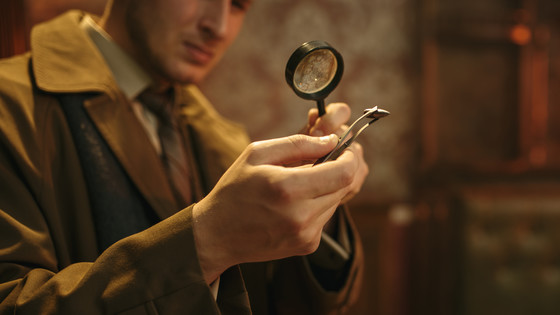Advice that ``the process of denial and destruction'' is important instead of ``accumulating settings and developments'' for creation

When I create, I build up ideas such as settings, story development, characters and designs, and then consider them and envision some patterns. On top of that, the ability to 'make a decision' becomes important, but more than that, creative writing should emphasize the 'decision by destruction' that determines by elimination while denying one's idea Professor and author Stephanie Bishop of
In Praise of Destruction: How Embracing Elimination Can Make Our Writing Better ‹ Literary Hub

Bishop begins by saying, 'I am wary of authors who say with absolute certainty, 'All that's left is to make a decision.'' When you're trying to write a piece, it's 'a piece that doesn't know what it's about or where it's going', and it also seems to have a consciousness of its own. A writer's job is to infer and know the opaque, and Mr. Bishop is even concerned that writers call their projects 'my books.'
Mr. Bishop points out that it is 'the tendency of people who write novels for the first time' to proceed by accumulating choices such as 'this is this' and 'here is this' for various elements of the work in progress. Bishop describes this stance as 'claiming ownership of the object', and Bishop himself says he is working in exactly the opposite direction.

During the lockdown due to the epidemic of the new coronavirus, Mr. Bishop was managing his two children to study at home while giving university lectures and producing works at the same time. At that time, as a result of trying to secure free space on the old computer to do all the work at home, he said that he deleted the initial project of his own work by mistake as unnecessary data for the university. Mr. Bishop said that he was shocked that he could not find a backup of the lost files for some reason, even though he habitually backed them up.
When he had this experience, Mr. Bishop seems to be clearly aware of his own writing process.
In the process of accumulating forward-looking decisions, even if you lose the work you created once, you can reconstruct the settings and scenes by making the same decisions about the work that was developed in your head to some extent. you can go However, in Mr. Bishop's case, he thought that the process of accumulating decisions was 'a mere sum of parts and felt like a stagnant sentence', so he repeated the deletion and elimination method 'process of decreation'. seems to have been employed. Therefore, it was very difficult to recreate the work from scratch.

Mr. Bishop talks about the ``decreation process'' that is important for creation, ``trying to choose the opposite (of the first idea)'', ``writing away (from the first idea)'', ``deleting'', and ``by elimination method''. Intuitive methods include writing, writing your own opposite opinion, writing about what you don't know, writing toward what you want to know, and working on what you don't understand.
Continuing, another important point of the 'decreation process' is that we should pay attention to 'what is not' rather than 'what is' the creative project. By knowing your sense of what your work can't be, what you don't want it to be, and what your instincts refuse to get involved with, you can 'set the parameters of your project.' You can,' said Bishop.
Overall, Bishop describes the creative process as 'detective work.' When I create, I collect my thoughts and use deductive elimination to eliminate superfluous things and find things that are as close to the essence as possible. To do so, it is necessary to create a framework that maximizes the stability of the unknown state in which discovery can occur, so it is important to continue to grope in dark spaces.

The story you're working on is cluttered and messy because a lot of it is in your head. It is quite difficult to organize the mess, and there are many causes of confusion in the process of making decisions from there, and it may happen that once the decision is made, it will feel suspicious if the day is changed. . Under such circumstances, the idea of ``the power of the author to make decisions'' is a mistaken idea. I'm going,' said Bishop.
Related Posts:
in Note, Posted by log1e_dh







